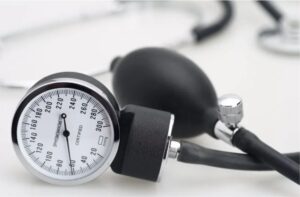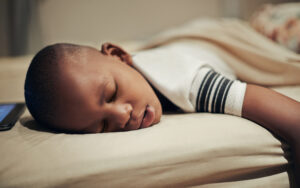If your child sounds like an elderly person snoring—or a freight train—when they sleep, they might have pediatric obstructive sleep apnea. That’s right, kids can have sleep apnea, too.
“It’s surprising to a lot of parents that it’s possible for children to have sleep apnea,” says Dr. Abhita Reddy, a pediatric otolaryngologist (ear, nose and throat specialist, or ENT) at Cedars-Sinai Guerin Children’s.
Sleep apnea is a condition where breathing stops or slows for periods during sleep. Many people who have sleep apnea snore, but not all people who snore have sleep apnea. Obstructive sleep apnea, the type discussed here, occurs when the airway is partly or fully blocked for some period during sleep. Obstructive sleep apnea is estimated to affect about 1% to 4% of children.
How can I tell if my child has sleep apnea?
Children with sleep apnea will often have a loud snore (not a soft, cute one) or may gasp for air or stop breathing for a brief time while sleeping. But they may have symptoms beyond snoring. They may wet the bed (despite normally good bladder control), go from being a happy kid to being irritable, be sleepy during the day or may start having problems (including inattention) in school.
Because sleep apnea can present in a number of ways, it’s important for parents to pay attention to behavioral changes and not solely focus on breathing during sleep.
“Not all children who have sleep apnea have symptoms that are as obvious as those events where they pause or gasp at nighttime,” Dr. Reddy says.
“It’s surprising to a lot of parents that it’s possible for children to have sleep apnea.”




